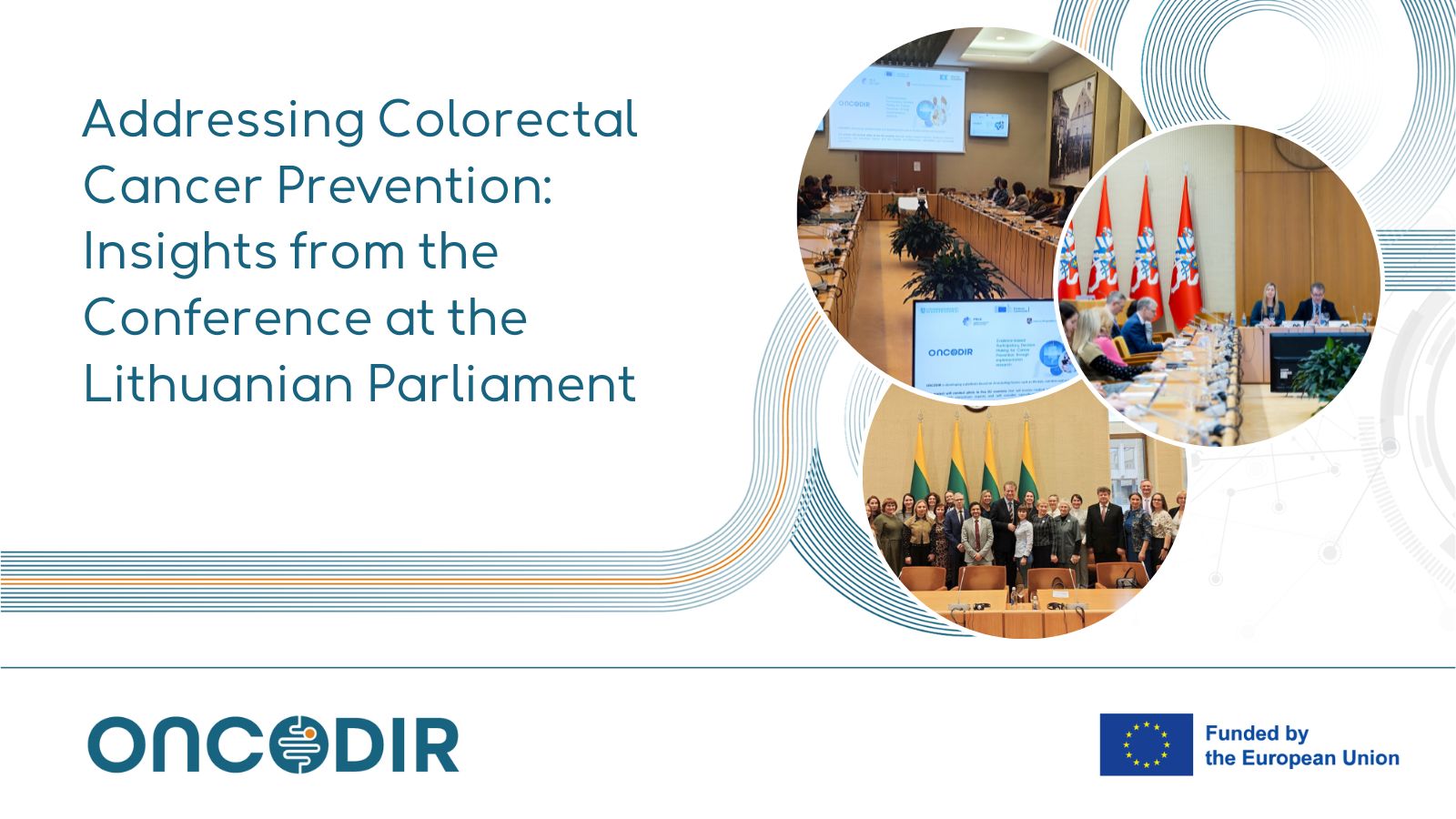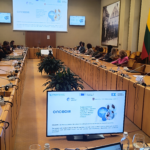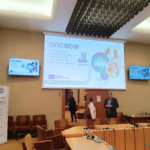
Addressing Colorectal Cancer Prevention: Insights from the Conference at the Lithuanian Parliament
Colorectal cancer remains one of the most pressing health concerns in Lithuania, with 1,600–1,700 new cases diagnosed annually. Despite the fact that the national screening program has been in place for 20 years, systemic challenges and low participation rates mean that 800–900 lives are lost each year. Addressing these critical issues, the Lithuanian Oncology Association, POLA, and Member of Parliament Prof. Saulius Čaplinskas organized a conference at the Seimas to discuss colorectal cancer prevention and ways to enhance screening participation as systemic challenges and low participation remain critical barriers.
Key Discussions and Expert Insights
The conference featured leading experts, including Prof. Tomas Poškus, Prof. Juozas Kupčinskas, and Assoc. Prof. Dr. Audrius Dulskas. Discussions focused on actionable solutions to boost participation in screening programs and save more lives.
Prof. Poškus emphasized the importance of regular screening and lifestyle factors influencing colorectal cancer risk. He highlighted that 92–93% of screened individuals are healthy, while early detection via fecal occult blood tests and colonoscopies can identify precancerous changes (14%) or cancer (2%) in time to act stressing the importance of participation in preventive screenings at a stage where intervention is most effective.
Prof. Juozas Kupčinskas, a partner in the ONCODIR project from the Lithuanian University of Health Sciences (LSMU), underscored the need for greater investment in prevention programs, citing Slovenia’s successful model. He also presented the ONCODIR project’s objectives, including an upcoming pilot study in Lithuania and the role of mobile apps in increasing patient engagement—a strategy that has proven effective in other countries. Kupčinskas stressed that high-quality, standardized care, including ensuring that experienced specialists perform colonoscopies, is key to improving screening outcomes.
Assoc. Prof. Audrius Dulskas stressed that fostering a culture of early detection should begin in schools, teaching students that preventive health checks are a sign of responsibility, not weakness. He reiterated that early-stage detection allows for the removal of precancerous polyps during colonoscopy, preventing the development of colorectal cancer altogether. He urged individuals not to delay screenings and to encourage loved ones to participate.
The Need for a Cultural Shift in Prevention
POLA director Neringa Čiakienė also highlighted the broader importance of lifestyle factors, emphasizing the role of diet, sleep, and alcohol reduction in cancer prevention. She called for stronger public awareness campaigns and praised media efforts in amplifying the conversation around colorectal cancer prevention.
Lifestyle Matters
Experts reinforced that lifestyle choices play a crucial role in reducing colorectal cancer risk. Reducing alcohol consumption, increasing physical activity, and incorporating whole grains, dairy, and calcium into one’s diet can all lower risk. Čiakienė urged a shift in mindset, stating, “We must stop glorifying avoiding doctors for 20 years and delaying health checks. Daily choices—like choosing fermented milk over alcohol—build a healthier future.”
Investing in Prevention
Several measures were outlined to improve cancer prevention and control over the next five years. Key proposals include initiating a discussion on reducing mandatory health insurance contributions by 5-10% for individuals regularly participating in screening programs. It was also suggested integrating screening program participation checks at every healthcare visit, raising awareness in regions, and targeting socially vulnerable and at-risk groups. Other measures involve engaging stakeholders to refine cancer prevention programs, establishing measurable quality and efficiency indicators, and ensuring equitable access to services like colonoscopies, potentially with transportation support. Experts emphasized making quality metrics publicly available, comparing them across municipalities and institutions, and allocating sufficient resources—financial, administrative, and human—to meet European standards for colorectal cancer prevention, diagnosis, and treatment. Additional recommendations include standardizing patient pathways with clear timelines and quality benchmarks, launching targeted campaigns on screening and healthy lifestyles using public health funds and national media, and enhancing health education in schools by involving doctors and patients alongside public health experts to foster personal responsibility for health.
Member of Parliament Prof. Saulius Čaplinskas emphasized that prevention should not be seen as an expense but as a long-term investment in public health. The conference underscored the need for collaboration between healthcare professionals, policymakers, and patient organizations to enhance the effectiveness of the national screening program.
This event was part of POLA’s 2025 awareness campaign “After THAT”, aiming to reduce stigma and increase participation in cancer prevention efforts. The event reaffirmed that timely screening saves lives. By working together, we can ensure that more lives are saved through early detection and timely intervention. With 5–6 new colorectal cancer diagnoses each day in Lithuania, the message is simple— don’t wait, take action today.
Author: Asta Tamulėnė, Lithuanian Cancer Patient Coalition (POLA)
Picture Credit: Lithuanian Cancer Patient Coalition (POLA)




